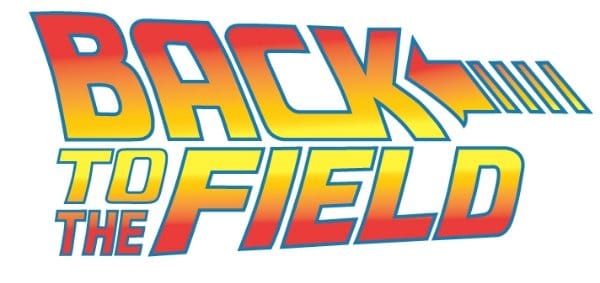Fellow Sales Trainers:
I have three questions to ask you: First, if you had to go back into the field, would you? Second, if you did could you actually practice what you teach? Third, would it change the way you train? Before you answer, here is my story:
“What do you think about going back into the field to cover a couple of critical vacant territories while we’re hiring?” asked my VP of Sales. (Insert dramatic pause here…)
Immediately, my heart said “Yes!” but my conscience said, “Let’s think about this.” I am the Sales Training Manager, the one everyone looks to as the expert, but what if I am not the expert anymore?
After careful thought, I told my VP that I would do it.
Some major anxiety followed over the subsequent weeks, but it was the good kind. I couldn’t wait to get that first call under my belt. I kind of felt like, well, one of my reps again!
As I reviewed my accounts, I knew that I would not be able to visit them often. Best case would be once or maybe twice over the next three to four months. I had to prioritize where I could make immediate impact utilizing one or two calls only, so I defaulted to what I have been teaching for years — analyze the territory. Here is how I broke it down:
- I asked Sales Operations for recent data points on each of the territories.
- I took that data and made a “hit list” for each, showing who was currently a champion (there were not many).
- Identified the “fires” — those who used to write within the last 6 months, but have now slowed or stopped writing.
- Lastly, I considered the accounts that wrote a year ago but have since slowed or stopped writing. I planned to visit these accounts three to four days per territory, which gave me about 40-50 people per territory to call on.
The goal was to make each trip more than pay for itself. If I was flying from NYC to Charleston or Chicago, it needed to be worthwhile.
After presenting my plan to the VP of Sales, he paused, handed it back and said, “I wish every rep did this.” That was enough motivation for my first trip.
I did what I should have done and what I have taught reps to do. I called every office and tried to schedule appointments prior to my trip. It got me basically nowhere. Cold calling is tough! Take an oncology therapeutic and combine it with a receptionist who has no idea who you or your products are and you won’t get far. To get things moving in a better direction, I reached out to other reps and friends that I thought might have knowledge of my territory.Now I had at least one or two contacts primed prior to making each visit. With the calls done, it was time to hit the road. I had no idea how stressful it would be again!
The sweltering heat and humidity of Charleston did not help the nerves at all. After all the due diligence, it was now time for execution. Not knowing the neighborhoods, picking a hotel in the wrong location— I was definitely falling into all the typical pitfalls of a new rep. After circling the block too many times, I finally arrived at the first office. I grabbed my bag out of the back seat, straightened my tie, and off I went. “We don’t see pharmaceutical reps.” “Great,” I thought. I walked them through my story, and that I was here from NYC. Still no luck. What a quick and targeted strike to the ego. Fortunately, another branch of this office was on the other side of town. The receptionist at this branch was more receptive to my story. I got past her to meet with one of the mid-levels, and then low and behold, came the doctor. I caught both of them in the hallway and held a textbook call. All of my training came back to me like instinctive behavior. Maybe I did still have it? From that moment on, the rest of my trip was easy. Access on the surface was a challenge until I effectively worked past the receptionist. More often than not I was able to get back to see customers in this territory and the others I would visit later.
One of my funniest stories happened while driving from Chicago to a small town in Michigan. I had the trip planned out on a map and GPS and got there with time to spare. When I walked in I was told that the doctor had left and that I missed my appointment. I hadn’t realized that I crossed a time zone, from CST to EST. Instead of being 15 minutes early, I was actually 45 minutes late. Maybe territory management is as important as they say it is!
So, what lessons did I learn in the field?
- Our new marketing message actually works! Four years prior to my time as a sales trainer and when I was a full-time rep our message was different. I’d been teaching the new messaging and seen it used on field rides. Delivering it while you actually have the bag over the shoulder is a different animal altogether.
- Objection handling needed tweaking. Experiencing the same objections around cost first-hand is very different than hearing it from your reps. My time out in the field allowed me to identify some small nuances that worked better than others. I even tweaked my workshops to reflect them.
- Walking a mile in your reps’ shoes is invaluable. As sales trainers, we are not immune from losing touch from our learners and what is going on in the field. The best leaders are often the ones who are in the trenches with you. Knowing that I had recently been back in the field gave me increased credibility.
Now that you know my story, are you ready to answer the three questions I posed at the beginning?
- If you had to go back into the field, would you?
- Could you actually practice what you teach?
- Would it change the way you train?
Please share your answers or “back to the field” stories by commenting below!
About the Author: Robert Terek is a Sales Training Manager at a rapidly growing specialty pharmaceutical company.






